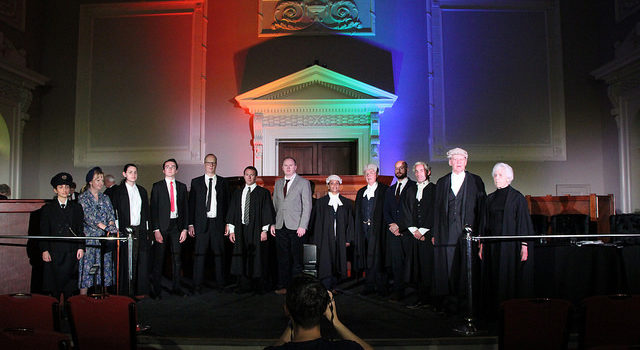 Uncategorised
Uncategorised
Cast interviews
- by Hwa Jung
Hear what the cast of Regina v Turing and Murray think about being a part of this production. Interviews conducted by Alex Hewitt.
Robert Burton - Alan Turing
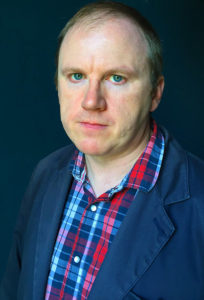 Robert found out about the open call through a friend who knew about his fascination with Alan Turing. His interest started with Bletchley Park. “I saw a documentary on TV about it. I think it must of been when the official secrets act released the information about what had been going on here. Over the years my interest in it grew. What went on there was of interest, and the people who were involved were of interest. And then when I found out what happened to Turing, I think like everybody else… the shock of the way he was treated, made him rise up in my awareness.” Robert’s understanding of Turing and gay rights changed through being involved in this production. “in terms of how, somebody who is an outsider, as he undoubtedly was, fits in with the rest of society. I do myself, feel like a bit of an outsider a lot of the time for many different reasons, I did feel a very strong connection, the more I read about him, especially since we started this project.”
Robert found out about the open call through a friend who knew about his fascination with Alan Turing. His interest started with Bletchley Park. “I saw a documentary on TV about it. I think it must of been when the official secrets act released the information about what had been going on here. Over the years my interest in it grew. What went on there was of interest, and the people who were involved were of interest. And then when I found out what happened to Turing, I think like everybody else… the shock of the way he was treated, made him rise up in my awareness.” Robert’s understanding of Turing and gay rights changed through being involved in this production. “in terms of how, somebody who is an outsider, as he undoubtedly was, fits in with the rest of society. I do myself, feel like a bit of an outsider a lot of the time for many different reasons, I did feel a very strong connection, the more I read about him, especially since we started this project.”
As a first time actor, he thinks “It’s been a great honour, for me to be a newbie as I am, to be dropped right in the middle of all this… It’s been brill”
Sam Rees - Arnold Murray
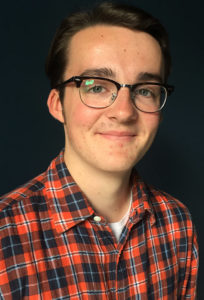 Sam has prior experience in acting primarily through school. Sam did not learn about Alan Turing at school till a computing class where he was “allowed to research anyone, and after speaking to my dad I decided research Turing, and I was like wow, this guy has done so much, and he’s pretty much the father of computing. And then obviously we’re in Knutsford, and I found out the courthouse was where he was trialled, and then there wasn’t a blue plaque there, there was nothing there to say that he was trialled here, and this was pretty much the town’s most historic event, so it was a bit crazy. So after this, it has embellished my love for Turing a bit.” He was unaware of Arnold Murray, the character he portrays in the play until auditioning for the role. “In preparation for the part I tired to look for pictures or anything about it, couldn’t find anything. Anyway, with the help of Steven and… the team, I’ve been able to grow my knowledge on him and it’s been really interesting to find that he was such a crucial part of Alan Turing’s later life, and yet… we don’t hear about him… It’s been really interesting.”
Sam has prior experience in acting primarily through school. Sam did not learn about Alan Turing at school till a computing class where he was “allowed to research anyone, and after speaking to my dad I decided research Turing, and I was like wow, this guy has done so much, and he’s pretty much the father of computing. And then obviously we’re in Knutsford, and I found out the courthouse was where he was trialled, and then there wasn’t a blue plaque there, there was nothing there to say that he was trialled here, and this was pretty much the town’s most historic event, so it was a bit crazy. So after this, it has embellished my love for Turing a bit.” He was unaware of Arnold Murray, the character he portrays in the play until auditioning for the role. “In preparation for the part I tired to look for pictures or anything about it, couldn’t find anything. Anyway, with the help of Steven and… the team, I’ve been able to grow my knowledge on him and it’s been really interesting to find that he was such a crucial part of Alan Turing’s later life, and yet… we don’t hear about him… It’s been really interesting.”
On filming the VR, Sam thinks “the recording of it was quite good because I’ve done a little bit of recording before, but that was quite interesting, to get someone's work, because my piece was done by Jay (Bernard), a local trans man, and that was interesting because it was his work, and I was saying it, so I had to like, interpret that, and the whole filming of it was cool with the small camera, the 360 degree camera… The whole process has been brilliant, with the VR and the performance itself, and being part of the heritage weekends as a whole. So many aspects of this experience have been brilliant.” Sam feels the experience will help him apply from drama school.
Graham Cliffe – Judge J Fraser Harrison
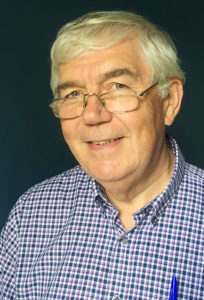 Graham is a former judge serving on the North Eastern circuit. He retired almost 5 years ago as have no prior acting experience. He was drawn to the play by Steven Downs, the director. He was initially recruited as a consultant about the mechanics of a criminal trial. Steven then suggested he play the judge. “Without acting experience I wondered if that was a wise thing to take on, but he persuaded me and I really enjoyed the experience.”
Graham is a former judge serving on the North Eastern circuit. He retired almost 5 years ago as have no prior acting experience. He was drawn to the play by Steven Downs, the director. He was initially recruited as a consultant about the mechanics of a criminal trial. Steven then suggested he play the judge. “Without acting experience I wondered if that was a wise thing to take on, but he persuaded me and I really enjoyed the experience.”
He was familiar with Turing’s story but “knew very little about the trial that came a couple of years before the end of his life. So it was interesting for me to look at that and how he was dealt with at the Knutsford Quarter sessions, because the quarter sessions is a court that no longer exists, it was phased out in the early 1970s and replaced by what we know today as the crown court. I can just about remember the quarter sessions from the time when I was a trainee solicitor. So it was interesting to look at the process by which he was dealt with, in a court that no longer exists.”
He can well remember the sexual offences act of 1967 as it was “a watershed piece of legislation, and it actually reached the statute book while I was a student at Manchester university, reading law. The age limits were different in those days, homosexuals could still be prosecuted if they were under 21 at that time, and over the years the age has been lowered. When you get a piece of major social legislation like that, it takes time for social attitudes to adapt and follow on from it.” He enjoyed the experience and said it may lead to some further acting work, despite not being from that background. “For me, it’s a brand new experience to see how a director of Steven’s experience can bring together people from very different backgrounds and weld them into a team. It’s been very good to see how the character’s have developed over the period of the rehearsals.”
Sharene Haffenden
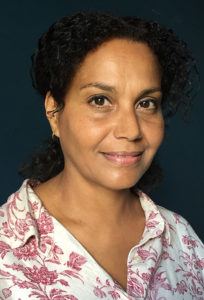 Sharene is a local resident of Knutsford and has not done any stage acting previously but has worked as an extra. She found the rehearsal process very informative. “I’ve enjoyed it, it’s really pushed me out of my comfort zone, because I think the last time I acted was when I was 10.” She had basic knowledge of Turing and the laws surrounding homosexuality. On working on the play, she is “very grateful for Steven for letting me have an opportunity to actually get on the stage, and you know, it has made me grow, it’s made me face my fear and enjoy it, it’s been exciting. I’ve met loads of lovely people too.”
Sharene is a local resident of Knutsford and has not done any stage acting previously but has worked as an extra. She found the rehearsal process very informative. “I’ve enjoyed it, it’s really pushed me out of my comfort zone, because I think the last time I acted was when I was 10.” She had basic knowledge of Turing and the laws surrounding homosexuality. On working on the play, she is “very grateful for Steven for letting me have an opportunity to actually get on the stage, and you know, it has made me grow, it’s made me face my fear and enjoy it, it’s been exciting. I’ve met loads of lovely people too.”
Geoff Holman – Mr R. David
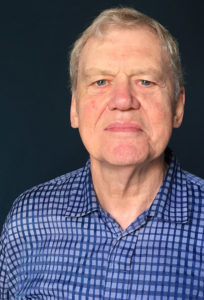 Geoff works professionally as an actor and found out about the production through a local theatre company. He thinks “Alan Turing is a hero. I think his story is a modern tragedy. The fact that it’s got local connections here is quite a big deal. Particularly, to do the re-enactment of the trial, actually where it happened, is quite something. I thought it would be good to get involved in any capacity.” He had some interesting points about homophobia in the 1950s, as he was a child during this time. “I think I grew up with the prevailing view that there was something odd about boys who preferred other boys.” Regarding the production, he was interested in the recreation of the trial. “What I thought at the outset, (was that Steven had) taken the court records as his basis and started from there, and inserted things like internal monologues and so on. And the one thing that really surprised me was to learn that there weren’t any court records. The things like the judge's summing up, the arguments of the barristers are not recorded. I think it’s interesting, the two voices of the prevailing societal view at the time are the prosecuting barrister and the judge. I mean the judge clearly has a person animus against Turing, at least the way Steven’s written it, as does the prosecuting barrister. My character, the prosecuting barrister at one point says ‘details of these depraved acts’. As a prosecuting lawyer he didn’t have to say depraved, but they’re pejorative adjectives, so it’s quite clear they’re not just legally dispassionate, the judge and the prosecuting barrister do actually think that Turing has behaved disgustingly, and as it were, deserves everything that he gets.”
Geoff works professionally as an actor and found out about the production through a local theatre company. He thinks “Alan Turing is a hero. I think his story is a modern tragedy. The fact that it’s got local connections here is quite a big deal. Particularly, to do the re-enactment of the trial, actually where it happened, is quite something. I thought it would be good to get involved in any capacity.” He had some interesting points about homophobia in the 1950s, as he was a child during this time. “I think I grew up with the prevailing view that there was something odd about boys who preferred other boys.” Regarding the production, he was interested in the recreation of the trial. “What I thought at the outset, (was that Steven had) taken the court records as his basis and started from there, and inserted things like internal monologues and so on. And the one thing that really surprised me was to learn that there weren’t any court records. The things like the judge's summing up, the arguments of the barristers are not recorded. I think it’s interesting, the two voices of the prevailing societal view at the time are the prosecuting barrister and the judge. I mean the judge clearly has a person animus against Turing, at least the way Steven’s written it, as does the prosecuting barrister. My character, the prosecuting barrister at one point says ‘details of these depraved acts’. As a prosecuting lawyer he didn’t have to say depraved, but they’re pejorative adjectives, so it’s quite clear they’re not just legally dispassionate, the judge and the prosecuting barrister do actually think that Turing has behaved disgustingly, and as it were, deserves everything that he gets.”
Steven Crawford - Prof Maxwell Newman
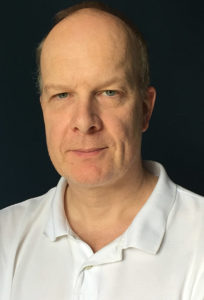 Steven had a bit of previous acting experience and was aware of Turing in terms of his computer research in Manchester. “To see the enigma machine working and to have a lesson in how it works is incredible.” Regarding the production, he has learned more about the relationship between Alan Turing and Professor Max Newman. “How he moved from the South up to the North because they were the only ones that had a decent computer to run his programs and mathematical theorems on.” The project has been an education, being part of the dramatisation of the hearing and the play in general. “I met the Silver Rainbows, I met people who have been persecuted. It has challenged my view of things. It’s been great to hear stories from actual gay men who were afraid of being themselves, which is a sad story and I think one of the things that attracted me to the play was that there was an injustice, what happened to Alan was so wrong it made me cross. I like to think I know what’s right and wrong, and what happened to him was completely wrong. It’s just nice to see that is society, it’s all turned round.”
Steven had a bit of previous acting experience and was aware of Turing in terms of his computer research in Manchester. “To see the enigma machine working and to have a lesson in how it works is incredible.” Regarding the production, he has learned more about the relationship between Alan Turing and Professor Max Newman. “How he moved from the South up to the North because they were the only ones that had a decent computer to run his programs and mathematical theorems on.” The project has been an education, being part of the dramatisation of the hearing and the play in general. “I met the Silver Rainbows, I met people who have been persecuted. It has challenged my view of things. It’s been great to hear stories from actual gay men who were afraid of being themselves, which is a sad story and I think one of the things that attracted me to the play was that there was an injustice, what happened to Alan was so wrong it made me cross. I like to think I know what’s right and wrong, and what happened to him was completely wrong. It’s just nice to see that is society, it’s all turned round.”
In terms of the overall project he says “I think that the coverage that the play has received and the celebration has received with the Unsung Stories, with new media has gone right out there, and will keep going, it’s not as if it’s going to be put in a draw or in a filing cabinet and that’s it. It’s going to be available for people to read about all over the world.” For the VR experience, particularly the film of Arnold Murray he says being “It’s the first one I’ve experienced as a 360 degree, it’s almost like a widescreen experience of him sitting in the dock. And technically it’s very interesting in how it was made, I understand it was put together very quickly. And to produce that, a deliverable kind of thing you can deliver to the people is really clever and there’s a lot of dedication gone into that.”
Richard Nixon - Mr Hugh Alexander
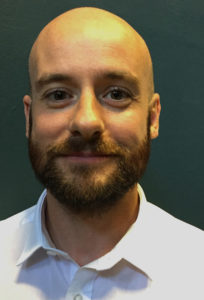 Richard reflects on the play “You can see that in the audience when we’ve delivered, especially today, having finished the matinee, that the audience is kind of split. There’s a section of the audience who are here for the historical story, and the story of Turing, and there a section of the audience who are more here for the equality and the changes to laws that you’ve mentioned. It’s lovely that the Q+A today crossed those people over. It felt like the two sections of the audience were learning from each other, and to have Peter’s speech at the end really does tie the two together, because here is a man, born in the 40s, having aversion therapy and really empathise, I don’t think anyone in the room can empathise with Turing like he can, but is a guy in 2017 who is gay and is married to his partner and has been with him for 30 odd years there on stage, it brings the two together beautifully.”
Richard reflects on the play “You can see that in the audience when we’ve delivered, especially today, having finished the matinee, that the audience is kind of split. There’s a section of the audience who are here for the historical story, and the story of Turing, and there a section of the audience who are more here for the equality and the changes to laws that you’ve mentioned. It’s lovely that the Q+A today crossed those people over. It felt like the two sections of the audience were learning from each other, and to have Peter’s speech at the end really does tie the two together, because here is a man, born in the 40s, having aversion therapy and really empathise, I don’t think anyone in the room can empathise with Turing like he can, but is a guy in 2017 who is gay and is married to his partner and has been with him for 30 odd years there on stage, it brings the two together beautifully.”
Alison Turing – Sarah Fleming
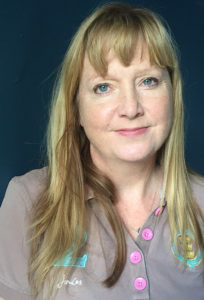 Alison found the project through the paper and local theatre group. She has previously seen a play called Breaking the Code, so had some knowledge of Turing. When asked about if she’d learned anything about gay rights she said “Yes I think so. We’ve had people discussing it after the play, and I hadn’t realised quite how recent the legislation had passed to make it in line with heterosexual (sex). I was at university in the 1980s, and to hear the gentleman talking about the fact they were still harassed then, it’s made me realise how recent that attitudes have changed and what they were like back then”. Being part of the play has “given me confidence to know that I can act elsewhere than the Wilmslow Green Room”.
Alison found the project through the paper and local theatre group. She has previously seen a play called Breaking the Code, so had some knowledge of Turing. When asked about if she’d learned anything about gay rights she said “Yes I think so. We’ve had people discussing it after the play, and I hadn’t realised quite how recent the legislation had passed to make it in line with heterosexual (sex). I was at university in the 1980s, and to hear the gentleman talking about the fact they were still harassed then, it’s made me realise how recent that attitudes have changed and what they were like back then”. Being part of the play has “given me confidence to know that I can act elsewhere than the Wilmslow Green Room”.
Anna Gromadska – Clerk of the Court
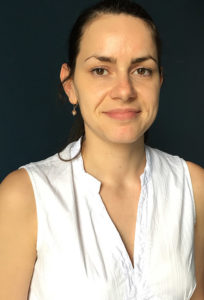 Anna had previous acting experience from the Green Room Theatre. She had some knowledge of Turing but found more more through this project. “The interesting thing is what wasn’t spoken of so much, or brought attention to so much. He was known as the guy that deciphered enigma, that made the first computer, so this is the focus I had when thinking of him, but never really thought of him from this perspective of him being sentenced for being homosexual. So it’s been interesting to be part of it as it brought a new light on him and a new issue to my attention.” Being part of the play has led to to think “the whole knowledge (of the experience of LGBT people) became more real, especially with the special guests after the play. So the two people that kindly joined us and gave a speech, giving us their experience of being homosexuals in that time, in 1950s, 1960s and from then on. I think that was really eye opening, you know, hearing real people talking about it.”
Anna had previous acting experience from the Green Room Theatre. She had some knowledge of Turing but found more more through this project. “The interesting thing is what wasn’t spoken of so much, or brought attention to so much. He was known as the guy that deciphered enigma, that made the first computer, so this is the focus I had when thinking of him, but never really thought of him from this perspective of him being sentenced for being homosexual. So it’s been interesting to be part of it as it brought a new light on him and a new issue to my attention.” Being part of the play has led to to think “the whole knowledge (of the experience of LGBT people) became more real, especially with the special guests after the play. So the two people that kindly joined us and gave a speech, giving us their experience of being homosexuals in that time, in 1950s, 1960s and from then on. I think that was really eye opening, you know, hearing real people talking about it.”
John Smethhurst - Usher
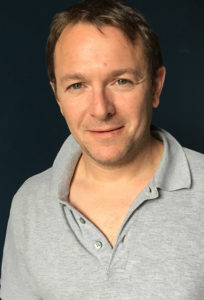 John has previous acting experience and training. Regarding the overall production he found the “compression of time interesting, but really impressed about how fast things have come together and to reach that particular level where people are really going to enjoy it.” When
John has previous acting experience and training. Regarding the overall production he found the “compression of time interesting, but really impressed about how fast things have come together and to reach that particular level where people are really going to enjoy it.” When
asked if he has learned anything about gay rights, he said “As the usher is the main information supplier of dates of new legislation, and also talking frankly about prejudice and internal conflict, confusion, I’ve definitely known when those acts came into place, and certainly with the Silver Rainbows at the end of the actual persecution of the people that I actually mention as the 50,000 eligible for pardon after 2013 according to Turing’s law”.
Atusa Pajand – Police Officer
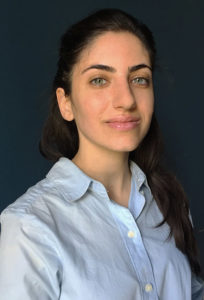 Atusa is a member of Green Room Theatre group and has some previous acting experience. She was aware of Turing and his achievements but “sadly I didn’t know of the conviction and I certainly didn’t know it was so close to home, you know here, in Knutsford. It’s been really important to come across that history and also to put it on stage as well and get audience members educated as well. It’s been a really interesting project for me. Hearing about how horrific the treatment was that he had to go through. It’s quite sobering to be in the venue itself, to think that where we’re stood, he was convicted, and so many other people wrongly. So you really do feel how profound history has been.” She found the process good, and enjoyed learning about local history. “I hope Alan Turing is looking down on us proudly!”
Atusa is a member of Green Room Theatre group and has some previous acting experience. She was aware of Turing and his achievements but “sadly I didn’t know of the conviction and I certainly didn’t know it was so close to home, you know here, in Knutsford. It’s been really important to come across that history and also to put it on stage as well and get audience members educated as well. It’s been a really interesting project for me. Hearing about how horrific the treatment was that he had to go through. It’s quite sobering to be in the venue itself, to think that where we’re stood, he was convicted, and so many other people wrongly. So you really do feel how profound history has been.” She found the process good, and enjoyed learning about local history. “I hope Alan Turing is looking down on us proudly!”
